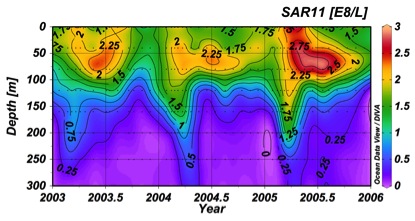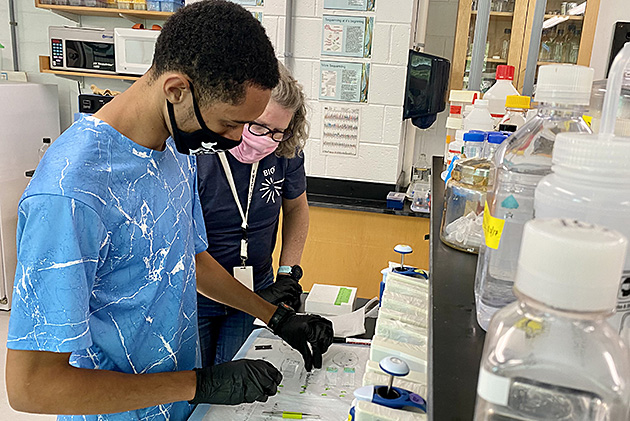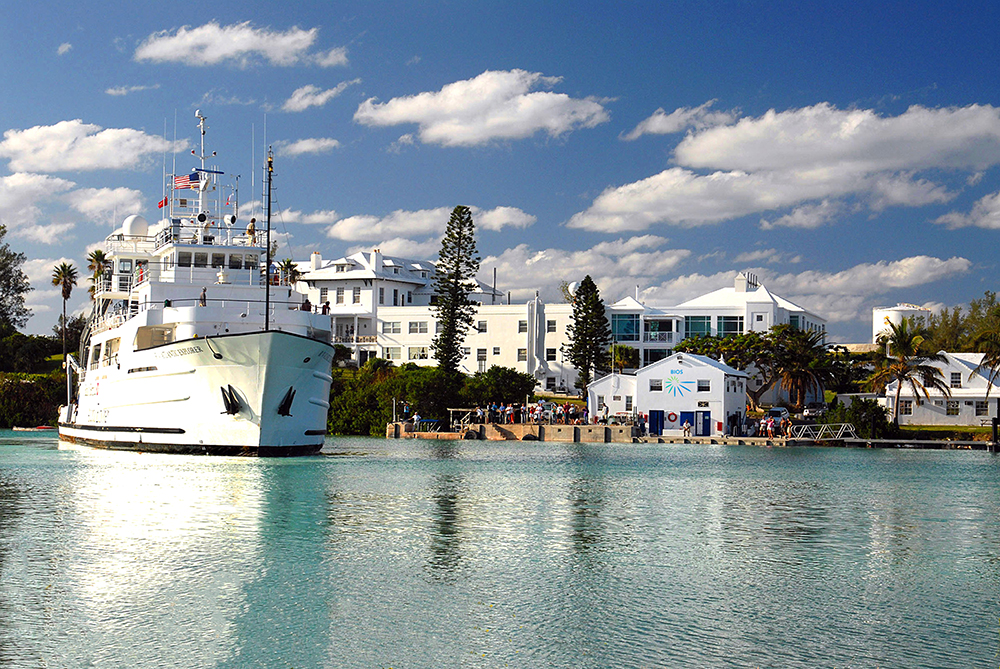Microbial Ecology Laboratory
Microorganisms in the ocean's surface layer play an integral role in the exchange of carbon between the atmosphere and ocean. However, even small changes in the metabolism of dissolved organic carbon (DOC) by microorganisms can impact the delicate balance between oceanic and atmospheric CO2. The microbial processes that determine DOC production, consumption, and distribution in the ocean are key factors in the global carbon cycle.
The Microbial Ecology Laboratory aims to understand the cell biology and biogeochemical activities of major bacterioplankton groups. These include marine bacteria and archaea that can influence the oceanic carbon, nitrogen and sulfur cycles through their metabolic processes. Scientists at BIOS, as well as partner institutions UC Santa Barbara and Oregon State University, are applying new technologies for cell culturing and studying both the metabolism of these organisms in nature, as well as their interactions with organic matter in the ocean. Research efforts are focused on the Bermuda Atlantic Time-series Study (BATS) site, located in a subtropical gyre with regular patterns of DOC cycling.
Highlights from the Microbial Ecology Laboratory include:
- Sequencing the genome of SAR11, the single most successful group of bacteria in the ocean. With this information, scientists can work to identify genes that allow SAR11 to obtain carbon, nitrogen, and phosphorus, which can provide insight into the secret of SAR11's success as a competitor in the world's ocean.
- Demonstrating temporal and seasonal variability among bacterioplankton and virioplankton populations and community structures.
- Improving capabilities to measure the quality and quantity of dissolved organic substrates.
For more information on the Microbial Ecology Laboratory, including past research foci and databases, please visit the Oceanic Microbial Observatory. For current research, please visit the BIOS-SCOPE website.

Contour plot showing a time-series of SAR11 distribution (x108 cells L-1) over 300m from 2003 to 2006 both temporal and spatial variability.
BIOS is committed to promoting diversity and equity in marine science and the wider STEM community. We strive to be a welcoming and inclusive community where all employees and visitors can develop, learn, grow, and discover, without regard to race, gender, sexuality, age, physical ability, creed, or country of origin. BIOS faculty and staff will honor and respect your experiences, perspectives, and unique identity.
In the News
Project Contact
Rachel Parsons
Research Specialist, Microbial Ecology Laboratory
Rachel.Parsons@bios.edu
Tel: 441-297-1880 x726
Project Team
Dr. Craig Carlson
Professor, University of California, Santa Barbara
carlson@lifesci.ucsb.edu
Dr. Stephen Giovannoni
Professor, Oregon State University
stephen.giovannoni@oregonstate.edu
Jessica Godfrey
Research Technician
Jessica.Godfrey@bios.edu
Related Items
Carlson Microbial Oceanography Lab
Microscopy and Image Analysis Facility
BIOS-SCOPE
Microscopy Images
Video Library
Preparing DAPI slides
Microbial Ecology Laboratory's Devil's Hole Project
DAPI Protocol
FISH Protocol
HR-DOM Protocol
Preparing Viral Abundance Slides









